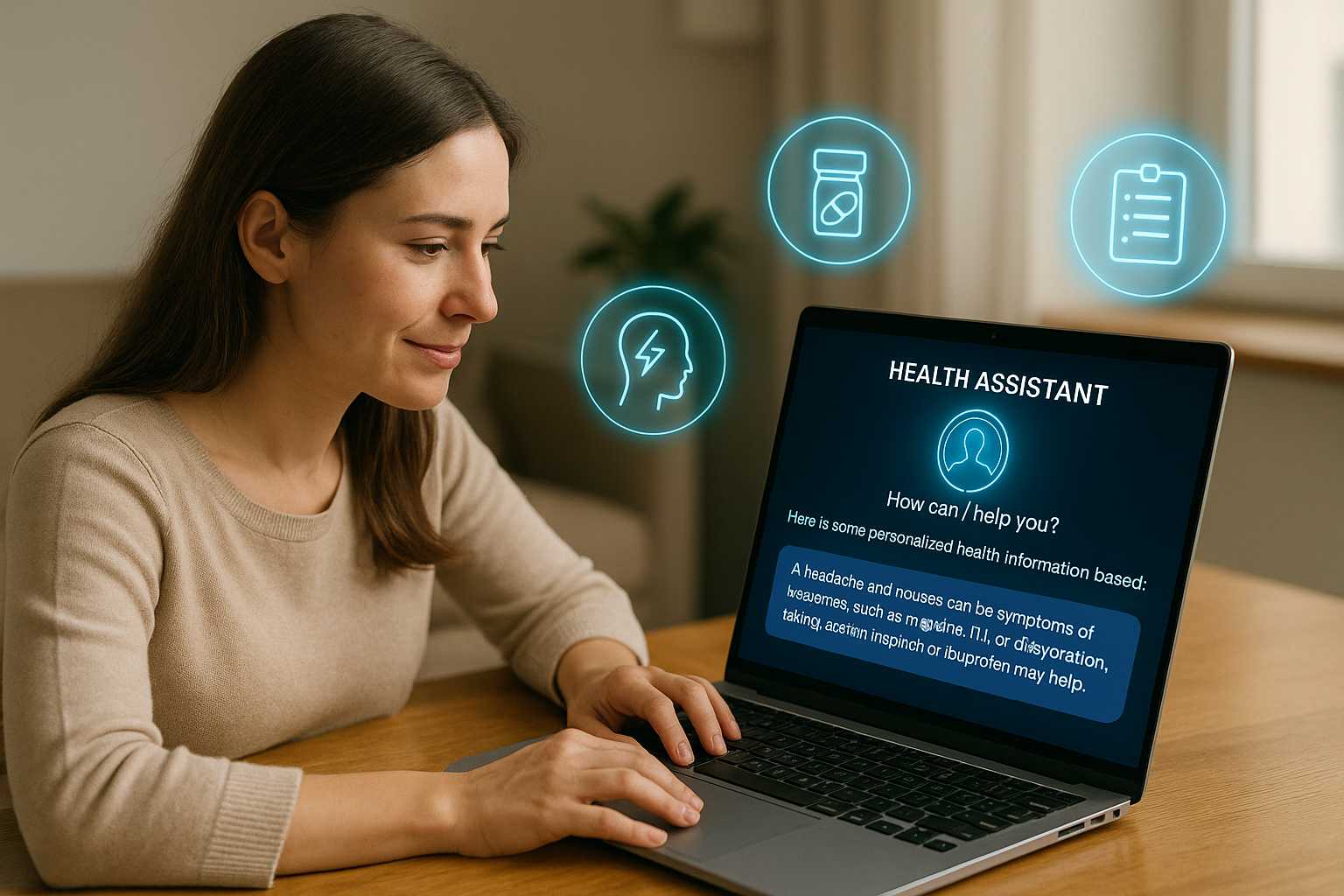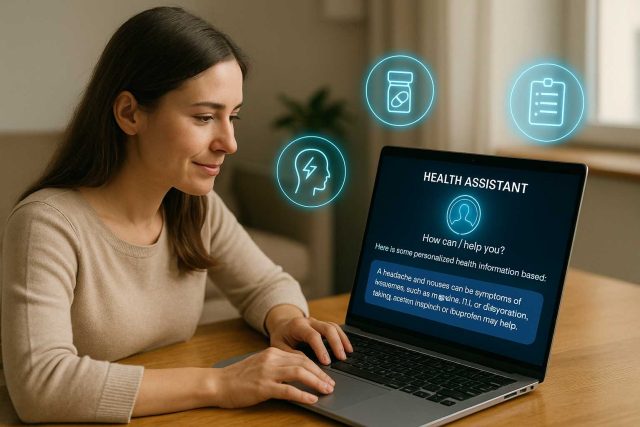
Imagine asking a search engine about your symptoms and getting an answer written just for you—concise, compassionate, and clinically informed. That’s the promise of healing smarter through generative AI. This new wave of technology is reshaping how people understand and manage their health by delivering tailored insights in real time. But is it truly reliable?
As patients increasingly turn to online resources before calling their doctor, the demand for personalized, trustworthy health content has never been higher. Generative AI is meeting this need by offering context-aware responses that go beyond generic links. Whether you’re managing fibromyalgia, navigating long COVID, or exploring treatment options for Crohn’s, healing smarter with AI might soon be the new standard.
Table of Contents
- What Is Generative AI in Healthcare?
- How Personalized AI Tools Are Changing Patient Behavior
- Benefits and Boundaries of Healing Smarter
- Future Outlook and What Patients Should Know
What Is Generative AI in Healthcare?
Generative AI refers to machine learning models that can create human-like text, images, or data responses based on prompts. Unlike traditional search engines that simply provide a list of articles, generative AI systems like ChatGPT, Claude, and MedPaLM synthesize information and deliver conversational answers. In the context of healthcare, this means AI can explain medical terms, summarize treatment options, or even simulate responses from a nurse or doctor.
For example, someone searching for help with lupus flares might receive a clear breakdown of symptoms, medication options like hydroxychloroquine, and lifestyle changes—all in one AI-generated reply. This interactive and intuitive approach is transforming how people absorb complex medical information.
While platforms like Healthcare.pro remain critical for seeking direct medical advice, AI adds a layer of convenience for initial learning. It doesn’t replace a physician but supports better understanding, making patients feel more informed and less overwhelmed.
How Personalized AI Tools Are Changing Patient Behavior
The shift toward healing smarter isn’t just a tech trend—it’s a behavior change. Patients now expect more from digital health resources. They’re no longer satisfied with broad, generic advice. They want answers that consider their age, condition, medication history, and mental health needs.
Generative AI can analyze context clues from users to provide targeted responses. For instance, if a user asks about managing diabetes while taking Ozempic, the AI can adjust its guidance accordingly—offering tips relevant to that medication, such as how it affects appetite and blood sugar levels.
Moreover, digital health marketers have begun integrating AI tools into branded websites and patient portals. As noted by eHealthcare Solutions, this strategy improves engagement by delivering customized content that meets patients where they are, both emotionally and clinically.
Importantly, these tools also help patients ask better questions during in-person visits. When users are equipped with baseline knowledge, they feel more confident discussing symptoms and treatment plans. This two-way communication fosters trust between patients and providers, creating a more collaborative healing process.
Benefits and Boundaries of Healing Smarter
Healing smarter with generative AI offers numerous benefits, but it also comes with boundaries worth understanding. On the positive side, AI improves accessibility for those who face barriers to care—such as geographic distance, insurance limitations, or time constraints. It also supports health literacy by simplifying complex language into something digestible.
For example, a patient confused about biologic treatments for ulcerative colitis might receive an explanation that compares different options like Humira or Entyvio, including how each works and potential side effects. This clarity empowers patients to engage in shared decision-making with their healthcare teams.
However, limitations exist. Generative AI can occasionally hallucinate or offer outdated information if not trained on current medical guidelines. Therefore, it’s crucial to validate AI-generated content with reputable sources or a qualified medical professional. Healing smarter doesn’t mean replacing doctors—it means supplementing their expertise with accessible tools.
Privacy is another concern. AI platforms should not collect or store sensitive health data without explicit consent. Patients should use platforms that prioritize data protection and transparency. For curated articles vetted by health editors, readers can also explore our top articles.
Ultimately, healing smarter is about informed engagement, not blind reliance.
Future Outlook and What Patients Should Know
Looking ahead, the future of healing smarter lies in integration. Hospitals and clinics are beginning to embed generative AI into patient portals, appointment systems, and even post-discharge instructions. This means you could soon receive AI-powered summaries of your visits, including reminders for medication or physical therapy.
Wearables and connected health devices may also benefit. Imagine your smartwatch flagging an irregular heartbeat and connecting you with an AI that provides immediate, evidence-based insights. Combined with telemedicine, these tools could make preventive care more proactive.
Nonetheless, patients must remain discerning. Not all AI tools are created equal, and not every answer will fit your unique health profile. Be cautious of chatbots making medical claims without referencing credible sources. Always consult a professional when making decisions about medications, surgeries, or treatment plans.
Generative AI will continue to evolve, but patient empowerment remains the goal. Healing smarter doesn’t mean surrendering control—it means gaining the knowledge to actively participate in your care journey.
Conclusion
Generative AI is ushering in a new era of personalized health information. From simplifying drug interactions to helping patients prepare for doctor visits, these tools are making health literacy more attainable. Healing smarter doesn’t mean replacing human connection in care—it means enhancing it with clarity, confidence, and timely insights.
As you explore this new frontier, remember to combine AI-powered information with professional guidance. The future of healing is smarter—but also safer, more inclusive, and deeply human.
For more trusted insights, explore our Top Articles on HealingWell.
FAQs
Can AI replace my doctor or specialist?
No. Generative AI can support your understanding, but it should never replace professional medical advice, diagnosis, or treatment.
Is it safe to enter personal health data into an AI tool?
Only use AI tools that clearly explain their privacy policies and avoid entering sensitive information unless the platform is HIPAA-compliant.
How accurate is health advice from generative AI?
Accuracy varies. Always cross-check AI-generated information with verified sources and consult your healthcare provider when making decisions.
What’s the benefit of AI if I already use Google for health questions?
Generative AI delivers synthesized, tailored answers rather than a list of links—saving you time and reducing confusion.
Is healing smarter only useful for chronic illness patients?
Not at all. While it’s especially helpful for managing long-term conditions, generative AI also supports general wellness, preventive care, and mental health literacy.
Disclaimer
This content is not medical advice. For any health issues, always consult a healthcare professional. In an emergency, call 911 or your local emergency services.




